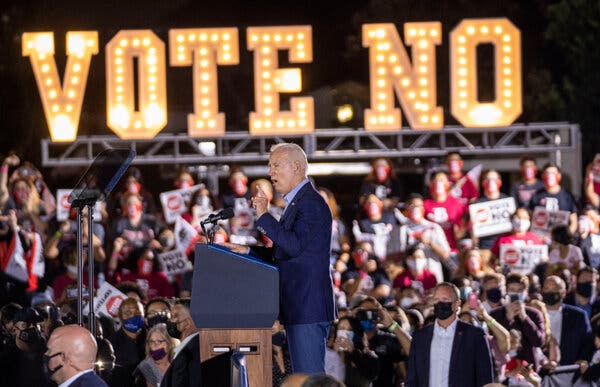
Why are California taxpayers spending millions on a recall election a year before their previously scheduled return to the ballot box?
Ask the Republican Party, which has not won a popular vote in a long time. Nevertheless, California voters decide today who of the more than 40 candidates on the ballot will replace Gov. Gavin Newsom in a recall election that could mark only the third time in U.S. history that a sitting governor is removed from office by voters.
The push against Newsom began in February 2020 as proponents justified the recall based on the governor's position on a number of political issues, including taxes and immigration. The process is unlike other elections: The ballot will ask voters two questions: Do they want to recall Newsom, yes or no? And if more than 50% of voters agree, then, who should replace him?
This recall election comes to an end today, but its effect on California politics could linger. Launched by Republicans and fueled by anger and fear over the COVID restrictions, the campaign has shined a light on the rules governing recall efforts, with academics and activists alike saying improvements are long overdue. New polling indicates voters might be ready for them.
The outcome determines whoever gets the most votes wins even without a majority. Speaking at a rally in Long Beach Last night, President Joe Biden called Newsom one of the best governors in the country.
A new poll released Friday by the Berkeley Institute of Governmental Studies and the Los Angeles Times indicates that Democratic voters have become more engaged in the upcoming recall election. Sixty percent of likely voters in California said they would vote to keep Newsom in office, while just 39% would vote to recall him.